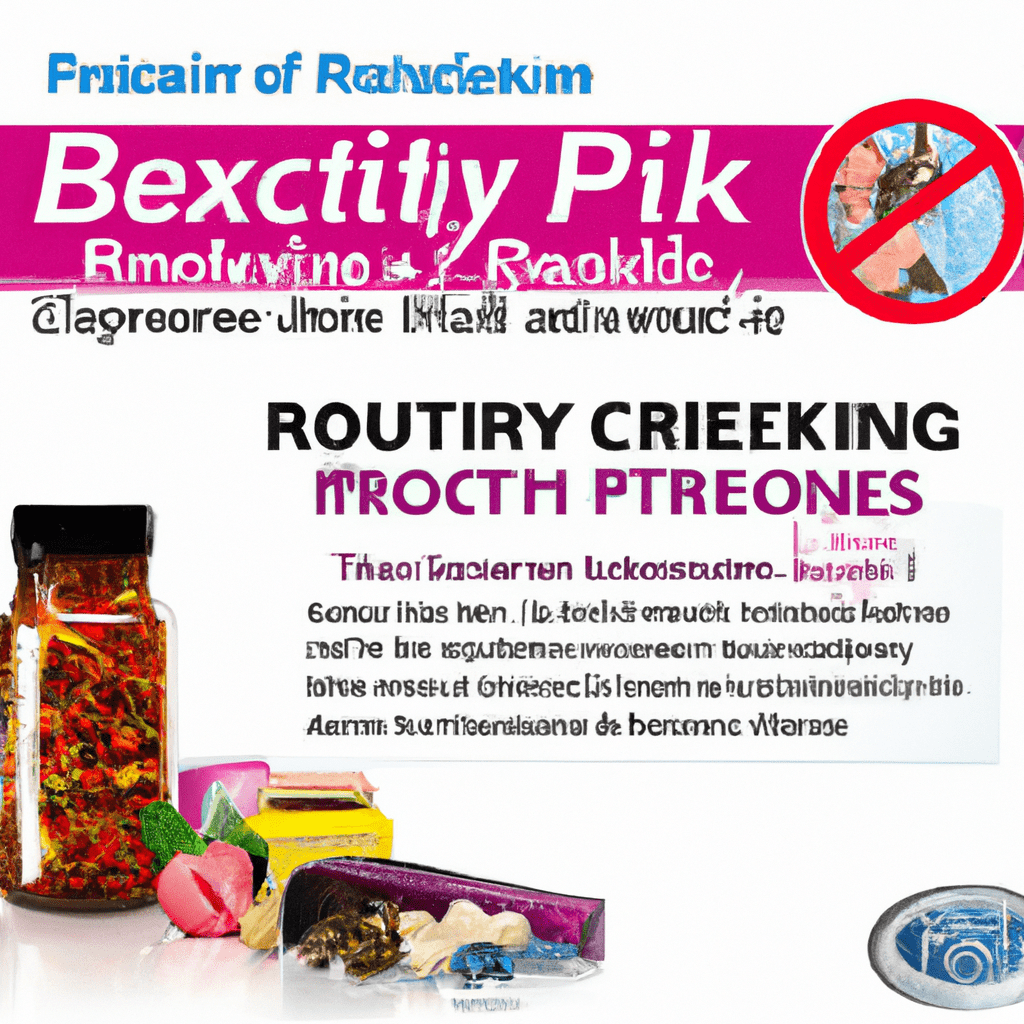



This image is property of pixabay.com.
In today’s fast-paced world, it can be easy to overlook the importance of maintaining our overall well-being, particularly when it comes to women’s health. With numerous factors impacting our physical and mental well-being, it is crucial to understand the potential risks that women may face.
From hormonal imbalances to genetic predispositions, this article sheds light on the various risk factors that can impact women’s health and encourages us to prioritize our well-being in order to lead happy and healthy lives.
Lifestyle Factors
Diet
A healthy diet is essential for maintaining overall health and reducing the risk of many diseases. Consuming a balanced diet that includes a variety of fruits, vegetables, whole grains, lean proteins, and healthy fats can help prevent obesity, heart disease, diabetes, and certain types of cancer.
It is important for women to pay attention to their nutritional needs, especially during different life stages such as pregnancy and menopause.
Physical Activity
Regular physical activity plays a crucial role in maintaining a healthy lifestyle for women. Engaging in activities such as walking, jogging, swimming, or strength training can help improve cardiovascular health, strengthen bones, enhance mental well-being, and manage weight.
It is recommended that women aim for at least 150 minutes of moderate-intensity aerobic activity per week, along with muscle-strengthening activities twice a week.
Smoking
Smoking has significant health implications for women. It increases the risk of various cancers, including lung, breast, and cervical cancer. Smoking during pregnancy can lead to complications such as preterm birth, low birth weight, and developmental issues in the child.
Quitting smoking is vital for improving overall health and preventing these adverse effects.
Alcohol Consumption
While moderate alcohol consumption may have some health benefits, excessive alcohol intake can have detrimental effects on women’s health. It increases the risk of liver disease, breast cancer, and other forms of cancer.
Women metabolize alcohol differently than men, making them more susceptible to the harmful effects of alcohol. It is important to limit alcohol intake and be aware of the potential risks associated with excessive drinking.
Drug Use
Drug use, including both illicit drugs and misuse of prescription medications, can lead to various health complications for women. Substance abuse can result in addiction, mental health disorders, liver disease, and an increased risk of sexually transmitted infections.
It is crucial to seek help and support if struggling with substance abuse and to follow the prescribed guidelines for medication use.
Reproductive Health
Age
A woman’s age can influence her reproductive health in several ways. As women age, the likelihood of fertility issues, such as difficulty conceiving and an increased risk of chromosomal abnormalities in offspring, can increase.
Additionally, older women may experience more complications during pregnancy and childbirth, such as gestational diabetes and high blood pressure. Regular check-ups and prenatal care become increasingly important as women age and plan to start a family.
Contraceptive Use
Contraception plays a vital role in family planning and preventing unintended pregnancies. Women should discuss contraceptive options with their healthcare providers to find the method that best suits their needs and lifestyle.
Proper use of contraceptives is essential to prevent unplanned pregnancies and reduce the risk of sexually transmitted infections.
Pregnancy Complications
Various factors can contribute to pregnancy complications in women, including pre-existing medical conditions such as diabetes or hypertension, age, and lifestyle choices.
Regular prenatal care, a healthy lifestyle, and managing any pre-existing conditions can help minimize the risk of pregnancy complications. It is crucial to consult with healthcare professionals to ensure a safe and healthy pregnancy.
Sexually Transmitted Infections
Sexually transmitted infections (STIs) pose a significant risk to women’s reproductive health. Women are more susceptible to certain STIs, such as chlamydia and gonorrhea, which can lead to pelvic inflammatory disease and infertility if left untreated.
Practicing safe sex, including consistent and correct use of condoms, and regular STI screenings are essential for preventing and detecting infections.
Menopause
Menopause is a natural phase in a woman’s life when she stops menstruating and can no longer conceive. It brings about several hormonal and physical changes, including hot flashes, mood swings, and changes in bone density.
Managing menopause symptoms and maintaining bone health through a balanced diet, regular exercise, and hormone replacement therapy (if recommended by a healthcare professional) can help ease the transition into this stage of life.
Genetic Factors
Family History of Diseases
A family history of certain diseases, such as heart disease, diabetes, and certain types of cancer, can increase a woman’s risk of developing these conditions.
It is important to be aware of any familial health history and inform healthcare providers to determine appropriate screening and preventive measures. Making healthy lifestyle choices, such as a balanced diet and regular exercise, can help mitigate these risks.
Inherited Gene Mutations
Inherited gene mutations can significantly impact women’s health. Certain gene mutations, such as BRCA1 and BRCA2, increase the risk of breast and ovarian cancer.
Genetic testing and counseling can provide valuable information about the presence of these mutations and guide women in making informed decisions about their health, such as undergoing preventive surgeries or implementing more frequent screening protocols.
Genetic Disorders
Various genetic disorders can affect women’s health. Conditions such as cystic fibrosis, sickle cell anemia, and muscular dystrophy can have a significant impact on both physical and mental well-being.
Genetic counseling, early detection, and appropriate management strategies can help mitigate the effects of these disorders and improve overall health outcomes.
Hormonal Factors
Hormone Replacement Therapy
Hormone replacement therapy (HRT) is sometimes used to manage menopause symptoms by supplementing the declining levels of hormones in the body.
While HRT can be beneficial for some women, it is not without risks. It is essential to consult with healthcare providers to weigh the potential benefits and risks associated with HRT and determine the most suitable treatment plan.
Endocrine Disorders
Endocrine disorders, such as hypothyroidism and polycystic ovary syndrome (PCOS), can significantly impact women’s hormonal balance and overall health.
Proper diagnosis, treatment, and management of these disorders are crucial for maintaining optimal well-being. Regular check-ups and adherence to prescribed treatment plans are essential components of managing endocrine disorders.
Polycystic Ovary Syndrome
Polycystic ovary syndrome (PCOS) is a hormonal disorder commonly affecting women of reproductive age. It can lead to irregular menstrual cycles, excessive hair growth, weight gain, and fertility problems.
Lifestyle modifications, including regular exercise, a balanced diet, and maintaining a healthy weight, can help manage PCOS symptoms. In some cases, medication
may be prescribed to regulate hormone levels and improve overall health outcomes.
Menstrual Irregularities


This image is property of pixabay.com.
Menstrual irregularities, such as heavy or prolonged periods, missed periods, or irregular cycles, can indicate underlying hormonal imbalances or other health issues.
Consulting with healthcare providers can help identify the cause of these irregularities and determine appropriate treatment options. Regular menstrual cycles are often indicative of normal hormonal functioning.
Mental Health
Stress
Stress can have a significant impact on a woman’s mental and physical health. Chronic stress can increase the risk of mental health disorders, cardiovascular disease, and other chronic conditions.
Practicing stress management techniques, including regular exercise, mindfulness meditation, and seeking support from mental health professionals, can help mitigate the negative effects of stress on overall well-being.
Anxiety and Depression
Women are more likely to experience anxiety and depression compared to men. These mental health conditions can significantly affect daily functioning, relationships, and overall quality of life.
Seeking timely diagnosis, appropriate treatment, and ongoing support from healthcare professionals is crucial in managing anxiety and depression and improving mental well-being.
Body Image Issues
Societal pressures and unrealistic beauty standards can contribute to body image issues among women. Negative body image can lead to disordered eating patterns, low self-esteem, and other mental health concerns.
Promoting body positivity, self-acceptance, and fostering a supportive environment can help address these issues and promote a healthy body image for women.
Environmental Factors
Air Pollution
Exposure to air pollution can have adverse effects on women’s health. It increases the risk of respiratory conditions such as asthma and chronic obstructive pulmonary disease (COPD). Pregnant women and children are particularly vulnerable to the harmful effects of air pollution.
Reducing exposure to polluted air, improving indoor air quality, and supporting efforts to reduce air pollution on a larger scale are important for protecting women’s health.
Water Contamination
Contaminated water sources can pose health risks, including the transmission of waterborne diseases. Access to clean and safe drinking water is essential for maintaining optimal health.
Adequate water filtration methods and proper sanitation practices can help prevent water contamination and protect women from associated health hazards.
Chemical Exposures
Exposure to harmful chemicals in the environment can have adverse effects on women’s health. Certain chemicals found in cosmetics, household products, and pesticides can disrupt hormonal balance and increase the risk of reproductive disorders and certain cancers.
Being aware of potential chemical exposures, using natural and non-toxic products whenever possible, and advocating for stricter regulations on chemical use can help mitigate these risks.
Radiation


This image is property of pixabay.com.
Excessive exposure to radiation, such as from medical imaging procedures like X-rays or prolonged exposure to sunlight, can increase the risk of cancer and other health issues.
It is important for women to follow safety guidelines and ensure that radiation exposure is minimized during medical procedures. Practicing sun safety, such as wearing sunscreen and protective clothing, can also help reduce the risk of harmful UV radiation.
Socioeconomic Factors
Education Level
Education plays a crucial role in women’s health outcomes. Higher levels of education are associated with improved health literacy, better access to healthcare, and increased employment opportunities. Empowering women through education can contribute to improvements in overall health and well-being.
Income
Income disparities can significantly impact women’s access to healthcare, nutrition, and other resources necessary for good health. Financial limitations may prevent women from seeking timely medical care or afford healthier food choices.
Promoting income equality and implementing social support systems can help reduce health disparities stemming from economic factors.
Access to Healthcare
Unequal access to healthcare services can hinder women’s ability to seek medical attention and receive necessary preventive care. Limited access to healthcare can be influenced by factors such as geographic location, socioeconomic status, and lack of health insurance.
Advocating for equal access to healthcare and supporting policies that promote affordable and comprehensive healthcare can help address these disparities.
Workplace Conditions
Workplace conditions can have a significant impact on women’s health. Certain occupations or work environments may be associated with increased physical risks, exposure to harmful substances, or high levels of stress.
Ensuring safe working conditions, reasonable work hours, and supportive workplace environments can protect women’s health and well-being.
Medical History
Previous Illnesses
A woman’s medical history, including any previous illnesses or medical conditions, can influence her current and future health.
Proper management of chronic diseases and regular check-ups are essential for monitoring the progression of these conditions and implementing appropriate preventive measures.
Chronic Medical Conditions
Chronic medical conditions, such as diabetes, hypertension, and autoimmune disorders, can significantly impact women’s health and quality of life.
Effectively managing these conditions through lifestyle modifications, medication, and regular medical care is crucial for minimizing complications and maintaining optimal health.
Surgeries


Previous surgeries, such as cesarean sections or hysterectomies, can have long-term implications for women’s health. It is important to communicate any past surgeries to healthcare providers to ensure appropriate medical management and preventive care.
Obesity and Weight
Body Mass Index
Obesity and overweight can have serious implications for women’s health. Excess weight increases the risk of numerous chronic conditions, including heart disease, type 2 diabetes, and certain types of cancer.
Monitoring body mass index (BMI) and maintaining a healthy weight through a balanced diet and regular exercise are important for overall health and disease prevention.
Obesity-related Diseases
Obesity is associated with a higher risk of several diseases, including cardiovascular disease, stroke, and certain types of cancer. Managing weight through healthy lifestyle choices, such as maintaining a balanced diet and engaging in regular physical activity, can help reduce the risk of obesity-related diseases and improve overall health outcomes.
GOBIOTIX Super Greens Powder Review
Ethnicity and Cultural Factors
Health Disparities
Ethnic and cultural factors can contribute to health disparities among women. Certain racial and ethnic groups may face higher risks of certain diseases or have limited access to healthcare resources. Recognizing and addressing these disparities through culturally sensitive healthcare and community initiatives are crucial for improving women’s health outcomes.
Cultural Practices
Cultural practices can have both positive and negative impacts on women’s health. Some cultural practices may encourage healthy behaviors such as breastfeeding or traditional dietary patterns.
However, certain practices may also contribute to health risks, such as harmful traditional procedures or limited access to reproductive healthcare.
It is important to promote culturally competent healthcare and engage in open dialogue to address any potential negative health impacts.
Kaged Outlive 100 | Organic Superfoods | Greens Powder Review
Linguistic Barriers


Language barriers can hinder effective communication and access to healthcare services for women with limited English proficiency.
It is important to provide language assistance services, such as interpreters or translated materials, to ensure that women can fully understand their healthcare options and receive appropriate care.
In conclusion, women’s health is influenced by a multitude of factors. Lifestyle choices, reproductive health, genetic factors, hormonal balance, mental health, environmental factors, socioeconomic conditions, medical history, weight management, and cultural factors all play a role in determining a woman’s health outcomes.
By understanding and addressing these risk factors, healthcare professionals and individuals can work together to promote women’s health and well-being throughout their lives.







